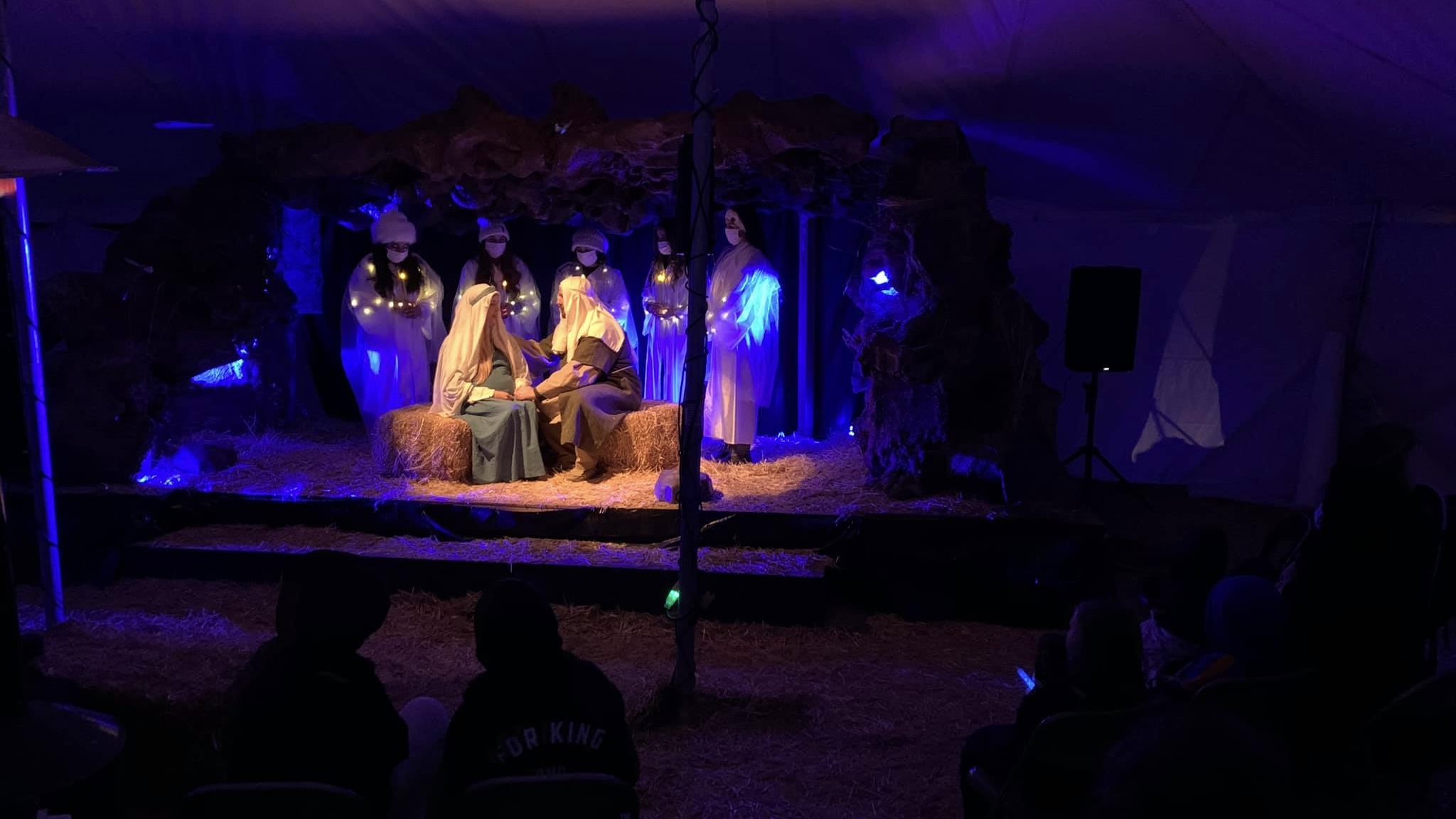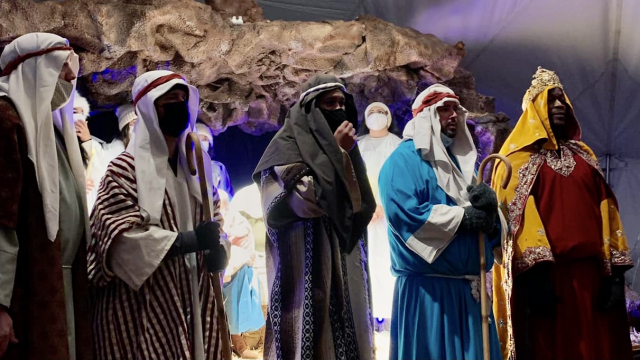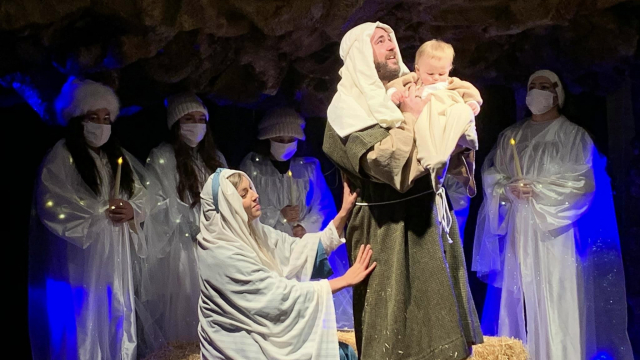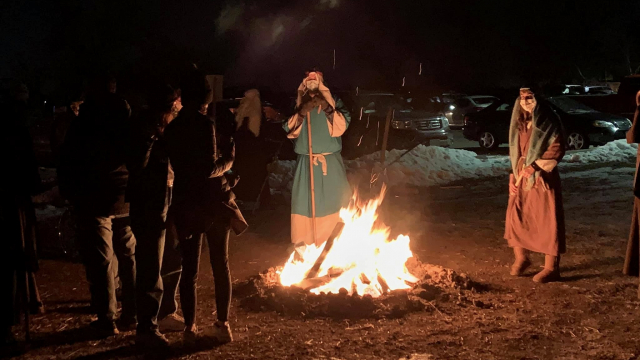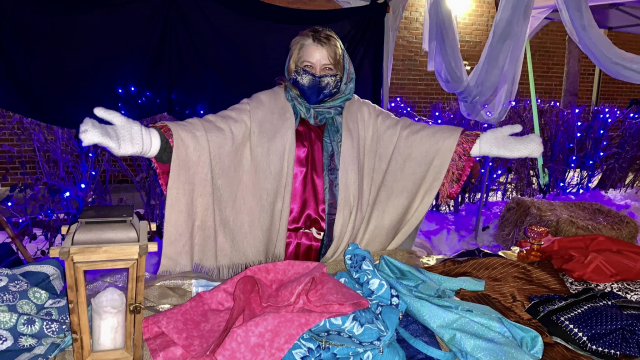By Zdravko Plantak — “I hate your Sabbaths!” This sounds like a pretty strong sentiment, right? “I hate, I despise your feasts, I take no delight in your solemn assemblies. Even though you offer me your burnt offerings and cereal offerings, I will not accept them, . . . Take away from me the noise of your songs; to the melody of the harps, I will not listen.” These are, of course, God’s words recorded by a prophet. Amos penned them in the context of what seems to be utterly detestable to God–Sabbath assemblies and worships that are not matched by social justice that rolls down like an ever-flowing stream. And Amos is not ambiguous on what is at stake in the same chapter [Amos 5] where he defines the social injustice problems in crystal clarity: “You trample on the poor, . . . you oppress . . . and deprive the poor of justice, . . . you turn justice into bitterness and cast righteousness to the ground.”
Of course, Amos is not the only prophet who suggests similar lines of thinking that link the issues of Sabbath and justice. In Isaiah 1, the community is called to repentance from meaningless worship and evil Sabbath assemblies (Vs. 13), “Sabbaths and convocations. I cannot bear your evil assembles . . . as they have become a burden to [God]” because the faithful do not “seek justice, encourage the oppressed, defend the cause of the fatherless, plead the case of the widow” (Vs. 17, 22-23). The anger of God is against those who have ruined God’s vineyard (God’s people, Is. 5:7) because “the plunder of the poor is in [their] houses [because they are crushing God’s people] and grinding the faces of the poor” (Is. 3:14-15).
I hope to briefly develop three constructive points, as I think we would do well to look again at the meaning of Sabbath observance and its relationship to necessary social implications and applications through the vision of the prophetic responsibility.
Sabbath’s Universality
Philo’s expression that the Sabbath is “the birthday of the world” and consequently a “festival, not of a single city or country, but of the universe” (Philo, On the Creation, XXX, as cited in Sakae Kubo, God Meets Men: A Theology of Sabbath and Second Coming, 1978), p. 19.), points to the universality of the Sabbath. And the universal Sabbath makes no distinction among people. Instead, it makes all people equal before God.
Sabbath teaching does not involve only the Sabbath day; it concerns the other six days of the week as well. The atmosphere and the principles of the Sabbath will not only “extend beyond the worship service to the dinner table and the living room” (Kubo, p. 27.) on the seventh day, but they would also become a part of the Sabbath attitude which ought to be practiced throughout the week. In the words of Jack Provonsha:
True Sabbath-keeping touches the whole of life. The Sabbath sanctifies the week. One cannot be dishonest on Monday and truly keep the Sabbath, because Sabbath- keeping is essentially a posture toward God that is not a one-day-in-seven kind of activity. (A Remnant in Crisis, 1993, p. 87.)
The concern for other people which the believer is called to have on the Sabbath must be extended to a way of life exercised daily. The Sabbatical concern, which extends from the weekly Sabbaths to Sabbatical years also, was to teach the faithful about the needs of the less fortunate, the poor, the widows and the orphans (Ex. 35:12-33). In a similar way, we must develop a greater “Sabbatical” conscience for the poor, the unfortunate, the racially and ethnically disadvantaged, and the powerless whose basic human rights are denied.
As Karen Mains suggests, without the meaningful Sabbath cycle, our spiritual world is being ravaged, defoliated and deforested . . . as the forests in the Amazon River Basin in Brazil, and with similar spiritual consequences. “We have become a dehydrated people, with meager spiritual life, dwelling in desert places of the soul. God meant when He said, “Remember the Sabbath day to keep it holy.” (Making Sunday Special, 1987, p. 145)
You see, without true Sabbath observance, without regularly entering that promised rest, our personal spirituality and our social concern can become dehydrated, deforested, and ravaged. We are becoming dehydrated people because we forget what Sabbath could bring to our compassion, relationship with, and love for others. On the other hand, a weekly reminder of God’s Shalom offered through Sabbath observance can replenish our compassion for and interest in others.
In the prophet Isaiah’s vision, in that oft-quoted passage in Chapter 58, that one needs to keep one’s feet from breaking the Sabbath and calling it delight (Is, 58:13) is directly linked to the earlier verses that have explicit social justice connection that elaborates on what may be a day acceptable to the Lord: “to loose the chains of injustice and untie the cords of the yoke, to set the oppressed free, and break every yoke; to share your food with the hungry, to provide the poor sojourn with shelter, to clothe the person you see naked, to spend yourselves on behalf of hungry and satisfy the need of the oppressed” (Is 58: 6.7.10).
Jesus is again the supreme example of the way God desired to have fellowship with man and how He intended the Sabbath to bring meaning to the worshipping community. As “the Lord of the Sabbath” (Mark 2:28), Jesus took pains to clarify the true meaning of the Sabbath. At the time of Jesus, the Sabbath had become a legalistic exercise of self- righteousness on behalf of different groups of believers who wanted to prove their perfection. Jesus, however, pointed out to the almost forgotten humanitarian function of the fourth commandment. As one commentator notes, To counteract prevailing legal interpretations which restricted humanitarian service on the Sabbath to emergency situations only, Jesus intentionally ministered on this day to persons who were not critically, but chronically ill. (Samuele Bacchiocchi, Divine Rest for Human Restlessness, 1980, pp. 194-195)
In such a way Jesus pressed the Sabbath into salvation history, making it a day intended for the benefit of humankind.
The Sabbath points to equality among all human beings. It is a memorial to God, the Creator. Remembering weekly that God is our Creator, and that all human beings are only creatures among whom the differences are really non-essential, should encourage Sabbath observers to accept and respect others regardless of their occupation, race, culture or nationality, ethnic or economic background, ability or disability, or their occupation, or educational level.
Sabbath’s Liberation
So, the Sabbath becomes the true means of liberation for humanity. It celebrates God’s merciful act of liberation and deliverance from the bondage of Egypt (Deut. 5:15), but it also points to the ultimate liberation from sin and all its consequences.
Charles Bradford remarked in his treatise on “The Sabbath and Liberation” that the Sabbath lay at the very heart of the first great freedom movement. Moses delivered God’s message to Pharaoh: “The Lord, the God of the Hebrews, has sent me to say to you: Let my people go, so that they may worship me” (Ex. 7:16). This was a direct appeal to Pharaoh to allow the enslaved people to observe the Sabbath rest. Later, God re-established the Sabbath as a sign of their liberation (Deuteronomy 5:15).
Moreover, this arrangement was to be permanent be- cause Sabbath rest and Sabbath observance is directly related to human dignity and freedom. Yahweh never intended for one human being to tyrannize another, or for one nation to subjugate another nation (Charles E. Bradford, “The Sabbath and Liberation: With the Sabbath, No One Can Keep Us Down,” Anchor Points, 1993, p. 28).
Several commentators call Isaiah’s description of the Sabbatical attitude in Isaiah 56:1-7 “Yahweh’s manifesto,” or God’s sign of freedom, independence and liberation. “Maintain justice and do what is right. . . . Blessed is the man who does this, the man who holds it fast, who keeps the Sabbath without desecrating it.” And “Yahweh’s manifesto” is relevant and applicable to the whole human family, especially to the outcasts—the poor, the powerless, foreigners (e.g., refugees) and eunuchs (politically and economically impotent). Bradford adds that, “The Sabbath is a sign in perpetuity
and a constant reminder of the relationships that exist between human beings and their God and between human beings and their fellow humans” (p. 28).
In the words of Sakae Kubo: “Sabbath observance has integral social and humanitarian aspects that we dare not forget. The Sabbath, as sign of redemption, points in two directions—to our own redemption and to that of the oppressed. We must bring rest to those who live in servitude (p. 46).
Ironically, we have many times failed to recognize that Sabbath observance should initiate liberation beyond our own community. Even within the church, the principle of equality was not always practiced rigorously. But, as Kubo concludes, if Adventists “fail to practice true fellowship and genuine equality, they betray a lack of understanding of the Sabbath as a sign of fellowship and equality” (p. 46).
Sabbatical Year Principle Through Annual Sabbaths and the Sabbath of Sabbaths
In Deuteronomy 15, the extensions of the weekly Sabbath idea apply to the sabbatical year and the Year of Jubilee, and it emphasizes almost exclusively humanitarian aspects. From a week of days to a week of years, God’s desire for the poor and the oppressed to be liberated is the prime concern of the true Sabbatical attitude (Ex. 23:11 and Lev. 25:10).
It is fascinating to notice how Jesus’ programmatic speech in Luke 4, where He said that He came to “set at liberty those who are oppressed and to proclaim the acceptable year of the Lord,” resembles the description of the Year of Jubilee. If we listen carefully to Leviticus 25:5.8-11, and also the detailed description of the Year for Canceling Debts in Deut. 15:1-11, we can detect the resonances of Jesus’ announcement of His ministry in Luke 4.
Jesus’ work was the true Sabbatation, the proper celebration of the Sabbatical consciousness. The idea of the land resting (lying “unploughed and unused”) on the seventh year focuses on concern for the poor, the slave, the underdog, as well as the rights which go beyond mere human rights to protect and preserve the environment because God cares about the Earth to the point of destroying those who destroy the Earth.
Theodore Friedman, the rabbi of Congregation Beth El in New Jersey and a former editor of Judaism, wrote that the Sabbath “is the anticipation, the foretaste, the paradigm of life in the world-to-come” (“The Sabbath: Anticipation of Redemption,” in Judaism 16, 1967, p. 443).
True Sabbath keeping is “playing heaven.” Rabbi Friedman concludes his article by saying: “The Sabbath is at once the climax of that primordial time and the paradigm of the future time. Therefore, man should so conduct himself on the Sabbath as if the future time were already at hand”
(p. 447).
–Zdravko (Zack) Plantak, PhD, is professor of religion and ethics at the School of Religion at Loma Linda University. Email him at: [email protected]

